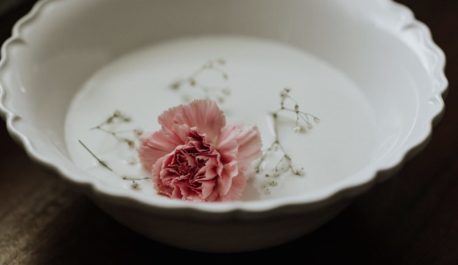
The rawness of gums
The day it happened; I knew for certain. The flesh of Mum’s memories were no longer rooted in her mind, and neither were her teeth in her mouth. When I walked in, she was sitting unshowered and crying on her unmade bed in a worn pale pink chenille dressing gown. She looked at me and I searched her face for an entrance into the fears encased in the folds of skin frumpled by time.
“I can’t find my teeth!” she sobbed, and quickly covered the tomb in her mouth with a trembling hand.
“Sometimes when she told stories about the past her eyes would get teary from all the memories she had, but they weren’t tears. She wasn’t crying. They were just the memories, leaking out” (p. 248).
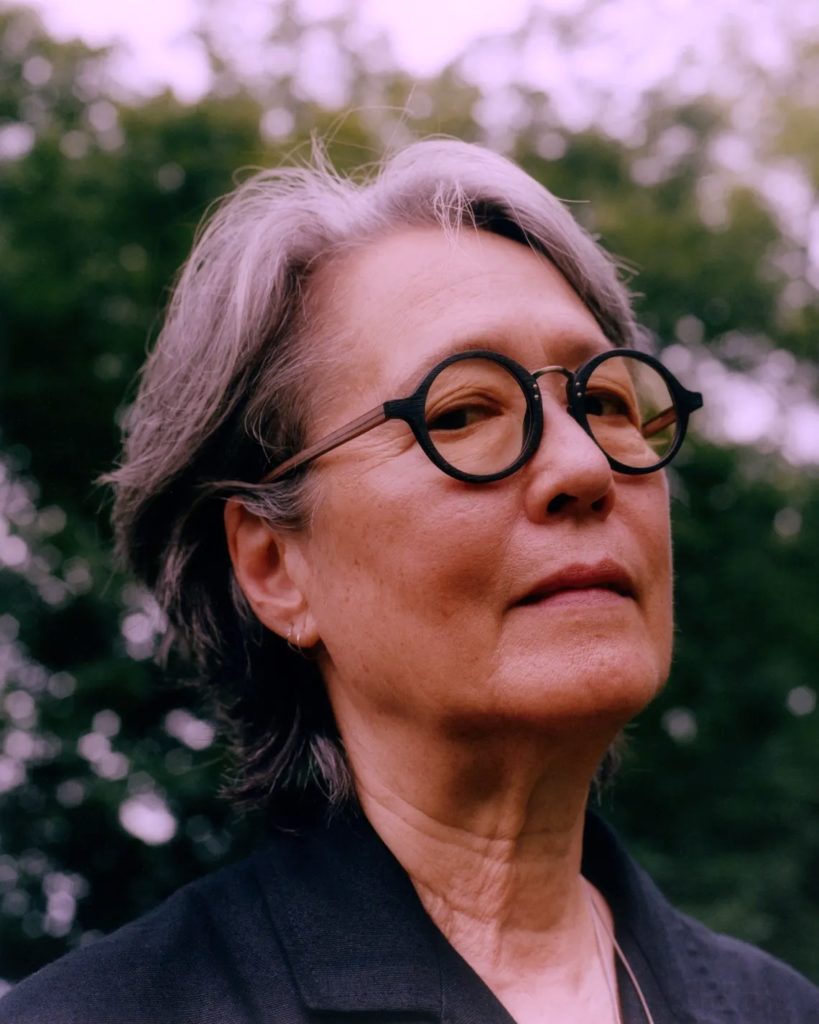
Ruth Ozeki
A tale for the time being (2013)
I read somewhere that people with memory loss are likely to lose their dentures at some stage, and I make a mental note to find out how to mark Mum’s name and phone number on the acrylic set she has worn for years, just in case. They used to fit quite snugly into the top right ridge of her gums, but I am not sure when she last had her teeth checked or how well she is taking care of them. As we get older, dental hygiene can deteriorate and with each missing tooth, the risk of cognitive impairment increases by 48% and the risk of dementia by 28%.
Who would have thought? When a person chews, the movement of teeth stimulates the brain’s hippocampus region, that embodied archive where episodic memories are formed, processed, and indexed for later access. Tooth loss means that fewer of these signals are sent. My hand moves instinctively, protectively even, to cover the lightly stained and slightly crooked rack of ivories inside my own mouth. I wonder if early 50s qualifies as old and how many times I have brushed my teeth today, what about yesterday, the day before that and further back?
“Oh Mum”, I squeeze her shoulder reassuringly. “They must be here somewhere; you just had them in to eat breakfast”.
“Did I?”, her chest heaves, “but I can’t find them now and how will we go out if I don’t have my teeth?”
I saw her fear and sat mine “down on the edge” (Cixous, 2011, p. 5) of the bed next to her, taking her frail body into my arms. I don’t think I have ever seen my Mum without her teeth, and I do not want her to see me staring at “my cry in her eyes” (Cixous, 2011, p. 6). I’m afraid of getting too close to this secret which up until now, the dentures have cleverly hidden in plain sight. But now the falsity has been stripped away, and laid bare by the rawness of her gums, is this unlie: I have two mothers. The one who has teeth in her mouth by day and remembers where she puts them by night, and the other one, the one who doesn’t and can’t because the boundaries between are decomposing her very roots. I remember reading Hélène Cixous speak of a similar moment, where in the grip of age her mother could no longer smile because she too had lost her dentures. At the time I found myself swept away by the poetics of Cixous’ words and did not think anything more about what was happening between them; but I had one mother then, and now I have two. When Cixous writes, “Mama is not mama. She has been replaced” (Cixous, 2011, p. 6). I feel the bones composing my tiny mother beneath my embrace, I feel her rib cage rising and falling against mine as she tries to catch her breath in between tears, and I feel her increasing “passporosity” (Cixous, 1997, p. 261) as she flits between the one and the other. Everything I have felt about Mum and her memory loss, I have felt “behind the back of my heart, to avoid catching sight of the occupant”(Cixous, 2011, p. 7) I hold in my arms, and suddenly it is me, not her, decomposing.
“Hi Beth, how are you love?”
This is not the story I wanted to share about the roots of love in wording the life worlds of Mum and me as an ethical being in relationality with the one as two. I wanted to engage in Donna Haraway inspired “compost narration” to say something about the symstory I am writing with Mum to “unearth a past”. In her piece titled “It matters what stories tell stories; it matters
whose stories tell stories”, Haraway (2019, p. 566) reflects in order to make [our] mother present for her daughters [and their sons and daughters] futures”. It was a gift from me to her on Mother’s Day in 2019. A message interrupted my on-screen reading advertising “Story-worth”, an online repository to make it easy to share, record and write personal histories. “Write your story, one week at a time with our inspiring prompts then get them printed in a beautiful hardcover book”, it promised. The plan was that Mum would write her own story, but each time she sat down to the computer she could not remember how to open a word document even though she could touch type faster than anyone I knew. So, I remembered with her.
Every Thursday morning at 9:00am I called Mum, my iPhone on speaker and my iPad ready to record. We began with a question, “What is the bravest thing you’ve ever done?”, “What are your favourite memories of your mother?”, “Who are the best cooks in the family?” and “When was a time when you were worried you didn’t have enough money?” Some days talk between us flowed footloose and fancy-free, and other days; it was difficult to get a foothold at all because—snap, the lines of connection between here and now and then and there were broken. In 2015, without invitation, dementia had opened the door into Mum’s world, kicked off its shoes, hung up its coat, put the kettle on and made itself at home. It was now busy misplacing the furniture of her memory around into unfamiliar, unrecognizable, and unreachable places without any hint of a please or thank you. Urgency and fragility sidled up and sat down with us, no matter how tightly I closed the door. Donna Haraway (2019, p. 567) was not wrong, “compost stories are as full of pain as anything else” and suddenly, as Cixous (1993, p. 7) laments in Three steps on the ladder of writing, there was no time to avoid it. My Mum and I have always been close, and her weekly story-telling felt like it was bringing us closer; I realised, perhaps in the same way that Carolyn Ellis (1996) did, how much I needed this “maternal connection”.
“Hi Beth, how are you love?” she often asked as she answered.
My heart would swell; there is something about the way she says the word “love”.
“I’m good Mum”, I replied. “How about you?”
“Pretty good love”, she always said—and together we would begin to remember.
Growing up without a toothbrush
I couldn’t live without your father, and I suppose the first cup of coffee is quite nice, isn’t it? Then there’s the daily crossword, especially the one in Saturday’s paper, it’s a monster and takes up the entire page—it’s meant to be quite hard. There is one thing I know I couldn’t live without—my teeth. Okay, well, I haven’t got many of my own teeth left, but I’ve still got my back molars. I was listening to a friend talk at bowls saying she has terrible trouble with her grandchildren when they come to stay because they don’t want to clean their teeth. All I could think was oh, golly, how lucky they are because when I was a little girl growing up in Cowra, I didn’t even know what toothpaste was—I never cleaned my teeth! I remember Dad cleaning his teeth with salt and Mum had false teeth, so she didn’t really worry too much. It was only when I started school that I started cleaning my teeth. The school dentist arrived one day and was quite taken aback at the state of mine. I don’t know if they gave me toothpaste or not, but they gave me a toothbrush and from then on I cleaned my teeth. Later when we moved to the city, Dad started working at Schweppes and brought home free bottles of leftover lemonade. Nothing was going to save my teeth after that! It’s marvellous what they can do now isn’t it? I have dentures at the top, but they don’t worry me at all. At night I take them out, put them in a glass of water by the side of my bed and my mouth feels a little bit funny without them. I’ve dentures for the bottom too but I don’t wear those because they actually hurt a bit at the back of my gums—I only put them in when I am going somewhere, it’s not a good look being seen without your teeth!
Everything depends on the teeth
Teeth have a “ragged vitality” notes Haraway, arguably the most durable, admirable, and enviable part of the body which refuses to deny irreversible destruction for as long as possible. They are with us for the long haul; our tooth buds begin to take shape before birth at 6 weeks gestation; and are one of the last vestiges of human matter to remain after death; willful shards of bone that “will never really be gone…patterned with/in traces” (Cutter-Mackenzie-Knowles et a., 2020, p. 110) of a life lived. Amidst all manner of trauma and disaster in life, Haraway (2016, p. 86) writes further, teeth remain resilient through “loss, mourning, [and] memory” and even cease decaying upon death—enamel decomposes, and some may fall away from the jaw, but teeth survive. Cradling my mother, “I tell myself, everything depends on the teeth” (Cixous, 2011, p. 7). If we can just find her teeth, “maybe she can live, maybe she can be present, without having to be absent” (Haraway, 2019, p. 573). Time begins to drum a thick coat on the enamel inside my mouth; and I know there is none to waste.
“You climb into the shower Mum, I’ll look for your teeth”, I help her from the bed and gently nudge her towards the bathroom.
“But what am I going to tell your father if I can’t find them?” She grips my hand, and her eyes grow large. “I really don’t want him to know about this”.
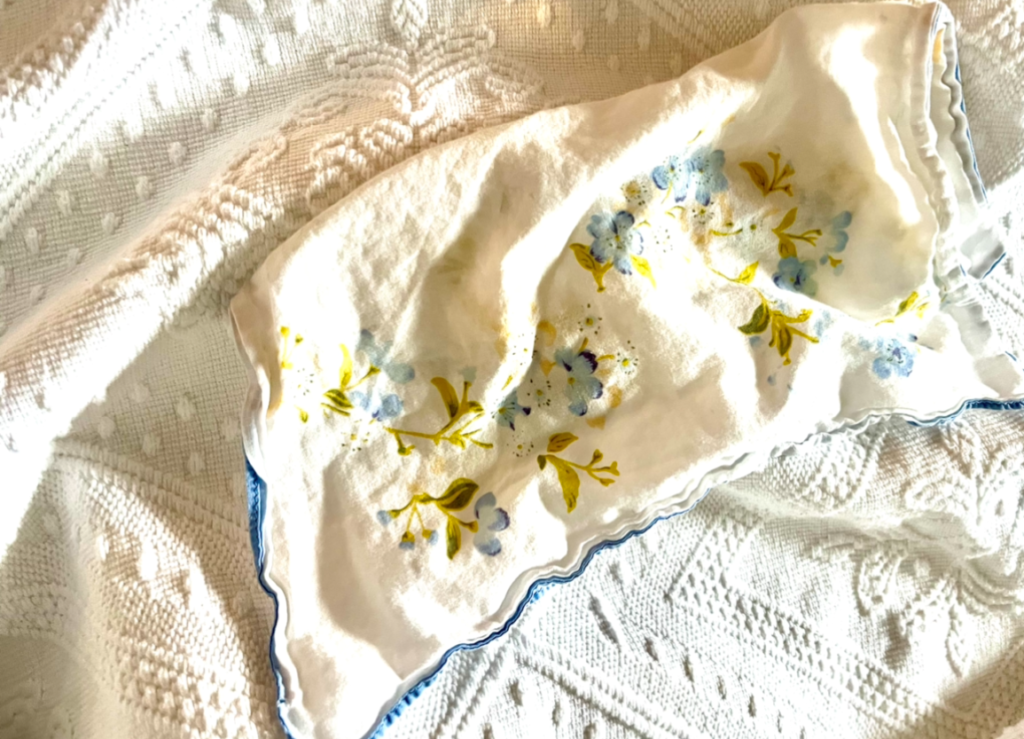
We found Mum’s teeth; they were nestled in the folds of a soft cotton floral handkerchief in her dressing gown pocket. Later that night, her full mouth smiled mischievously, perhaps a little too conspiratorially, as we clinked glasses of red wine over dinner; she was not about to let life be ruined by the cult of memory or regret, and besides they had already slipped through the holes. One is ready and not ready when it happens; when so much residue is washed away, that roots no longer hold. Roots and rootedness, writes Simone Weil (1952), are the philosophical, ethical and spiritual groundings that situate and sustain us, that form a being in relationality with those who are living, those who are no longer with us and those who are yet to come. In writing Mum’s story, I am trying to put the traces of memories she holds back into place, to return her roots, to bring her back to us when she is no longer there, and to remember – love. Remembering is making sure the bits and pieces of her heart—and mine—are made whole (after bell hooks, 1999, p. 87). “For we think back through our mothers if we are women”, Virginia Woolf’s (1929, p. 114) words sit with me as I turn over the ethics of “writing, life” together with Mum—“not life writing” as Haraway (2019, p. 565) suggests—“but compost writing, writing-with in layered composing and decomposing in order to write at all”. Her words are lessons of love to remember; how it is that a woman’s life, a mother’s life, a life in relation-with might be lived; and I never want to forget.
Mum has been in hospital since December last year when her memory loss uprooted her and very nearly spirited her away. In this “symstory”, I have barely dared to say the D word; because until the day this happened, no-one in my family wanted to call its clear and present danger into being. Dementia is a cruel disease, “a presence of departed acts, at window and at door”, her parties astir with axe in hand waiting for the right moment to strike another blow. “Refuse to be an accomplice”, Simone Weil (1970, p. 6) suggests, “Don’t lie, don’t keep your eyes shut”; indeed, attend to this unruly companion urges Haraway because making-with and telling-with are necessary to becoming at all. Without death, we know nothing of life, insisters Cixous (1993, p. 7), so write texts that confront dementia and destroy its limits, write words that move, touch, and wound with such joyful pain—to remember, love.
References
Hélène Cixous. (1993). Three steps on the ladder of writing. Columbia University Press.
Hélène Cixous. (2011). Hemlock. Wiley Press.
Hélène Cixous and Eric Prenowitz. (1997). My Algeriance: In other words, to depart not to arrive from Algeria. Triquarterly, 100, 259-279.
Amy Cutter-Mackenzie-Knowles, Shae Brown, Maia Osborn, Simone Blom, Adi Brown and Thilli Wijesinghe. (2020). Staying-with the traces: Mapping-making posthuman and Indigenist philosophy in environmental education research. Australian Journal of Environmental Education, 36(2), 105-128.
Carolyn Ellis. (1996). Maternal connections. In Carolyn Ellis and Art Bochner (Eds.), Composing ethnography: Alternative forms of qualitative writing (pp. 240-243). Alta Mira Press.
Donna Haraway. (2016). Staying with the trouble: Making kin in the chthulucene. Duke University Press.
Donna Haraway. (2019). It matters what stories tell stories; it matters whose stories tell stories. A/b: Auto/Biography Studies, 34(3), 565-575.
bell hooks. (1999). Remembered rapture: The writer at work. Holt.
Ruth Ozeki. (2013). A tale for the time being. Penguin.
Simone Weil. (1952). The need for roots: Prelude to a declaration of duties toward mankind. Routledge.
Simone Weil. (1970). First and last notebooks: Supernatural knowledge. Oxford University Press.
Virginia Wooolf. (1929). A room of one’s own. Hogarth Press.
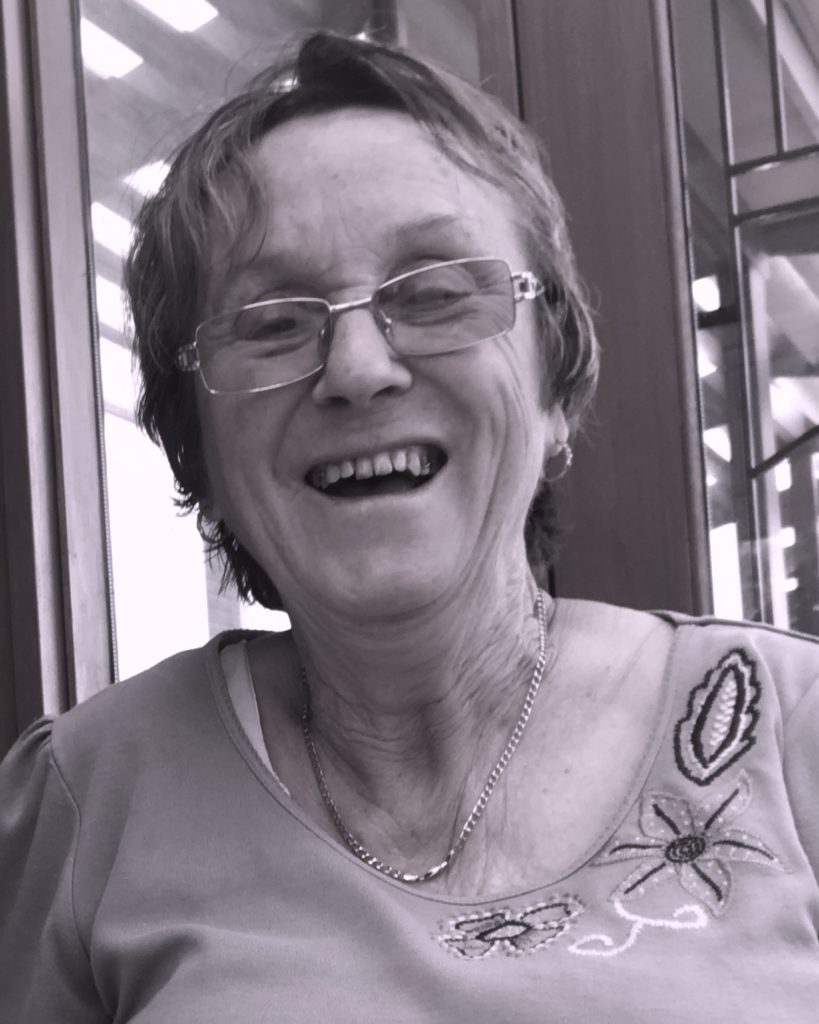
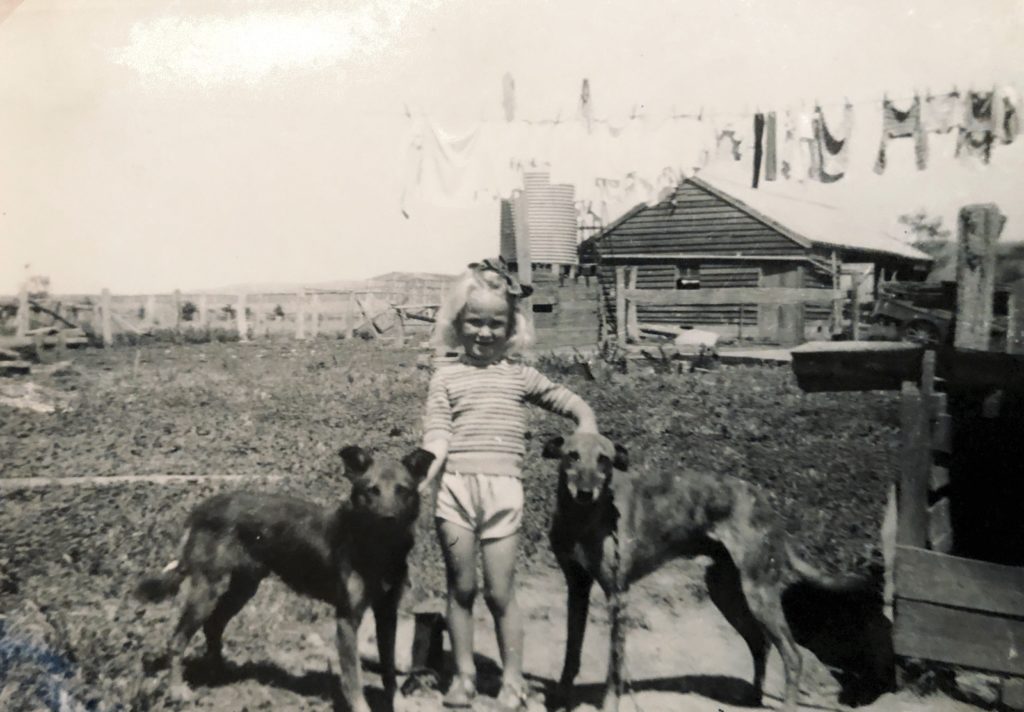

This is so beautiful. I will return to read more, when I can. When I can find the breath to bolster my fallen chest that grieves for a mother I once thought I had, but did not. Your story, of your mother and of you, is so full of love. The sadness and loss that you speak of make your love glisten and sparkle all the more. Thank you.
Oh thank you Stacy – your words are just lovely. My writing often returns to my relationship with Mum and with being a mother – a relationship where love can be full and present, where the work of love can be difficult, and sometimes not at all present. Rembering love in all of these ways is something I often return to. Sending you much love, Liz
Thank you so much for sharing this … as i read i re-membered the words pouring from your mouth in honeyed memory, could hear your voice, working around the catch of such deep, poignant love. Truly beautiful writing x
Thank you Nicola, truly lovely words about a piece written with love for Mum x
Thank you friend; these are extremely beautiful feelings, moments and words.
Your Mum sounds awesome, as you are!